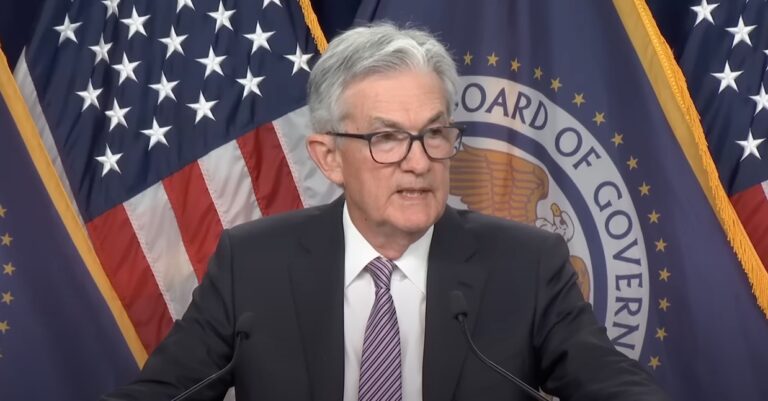Federal Reserve Chair Discusses Monetary Policy and U.S. Economic Resilience
Federal Reserve Chair Jerome Powell recently appeared on Bloomberg TV’s “Wall Street Week,” where he discussed the U.S. economy’s resilience and the impact of monetary policy with host David Westin. The interview took place at an event organized by the Economic Club of New York.
Economic Resilience and Consumer Spending
Powell highlighted the U.S. economy’s strong growth, defying forecasts from a year ago that predicted a recession. He attributed this robust performance primarily to consumer spending, fueled by a strong job market and high first-time nominal wages. As inflation has decreased, real wages have spurred additional spending.
Interest Rates and Economic Susceptibility
Powell noted that the economy might be less affected by interest rates than in the past. Companies with access to the bond market have extended their debt terms, making them less sensitive to rate hikes. Similarly, homeowners with long-term, fixed-rate mortgages are not feeling the impact of higher rates. However, Powell acknowledged that interest-sensitive sectors like housing and durable goods purchases have been affected.
Historical Precedents and Future Rates
When asked about historical precedents for a growing economy with high rates, Powell said it’s challenging to predict the neutral level of rates in the future. Factors like the aging global population and globalization have kept rates low for the past 25 years. The pandemic’s long-term impact on these factors remains uncertain.
Long-Term Equilibrium Rate
Discussing the long-term equilibrium rate, Powell stated that it had been decreasing steadily for decades. While he couldn’t specify its current level, he mentioned that it might have risen in the short term. However, its long-term trajectory is still unknown.
Real Economy and Cost of Capital
Powell, who has significant exposure to the private sector, shared insights from CEOs about the cost of capital. He noted that while the economy remains strong, the rising cost of capital could impact smaller and early-stage companies more significantly.
Monetary Policy and Inflation
Powell emphasized the Federal Reserve’s commitment to delivering low and stable inflation. He acknowledged the negative effects of higher interest rates on sectors like homebuilding but stressed that price stability is the ultimate goal.
Bond Market and Policy Tightening
Finally, Powell stated that higher bond rates are affecting financial conditions, which is precisely what monetary policy aims to do. He suggested that the bond market’s movements could reduce the need for the Federal Reserve to continue raising rates, although this remains to be seen.
Powell concluded that, based on current evidence, monetary policy does not appear to be too tight. He reiterated that the Federal Reserve’s primary responsibility is to deliver low and stable inflation, even when such actions are unpopular.
https://youtube.com/watch?v=3rt2KX2Tw3A%3Ffeature%3Doembed
Source: Read Full Article

